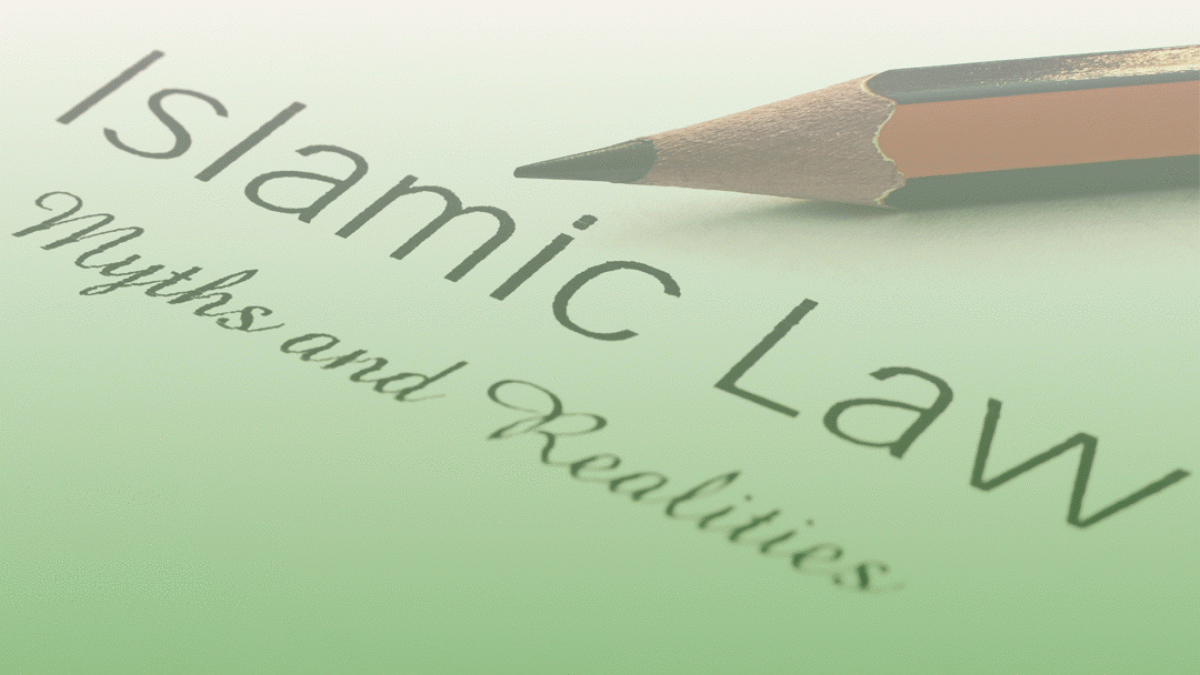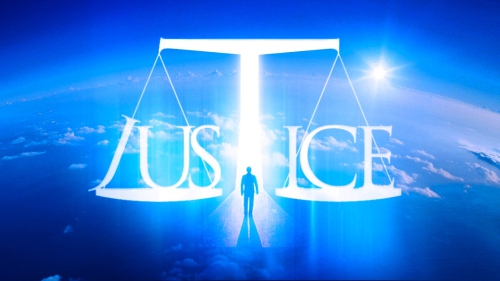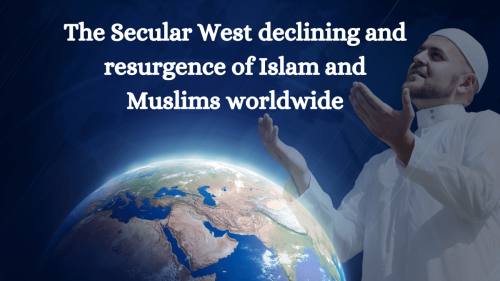Shariah’s Winding Path Into Modernity

In June, Americans in about two dozen cities joined a “March Against Sharia.” For these protesters, the Arabic term is a code word for the oppression of women and men in the name of God — horrors like stoning and beheading. Since such brutalities do indeed happen in the name of Shariah, they may have had a point. But there were also points that they missed.
In Arabic, “Shariah” literally means “the way.” More specifically, it refers to the body of Islamic rules that Muslims see as God’s will — based either on the Quran or on the Prophet Muhammad’s reported words and deeds. It is conceptually impossible, therefore, for a Muslim who is serious about his faith to condemn Shariah. But the implementation of Shariah, which is called “fiqh,” or jurisprudence, is open to interpretation and discussion.
Much of Shariah is about personal observance: A good Muslim should pray five times a day while turned toward Mecca, for example, or should fast daily throughout Ramadan. Of course, there is no problem with these acts of personal piety — unless they are coerced. They should be welcome in any society with religious liberty.
However, a part of Shariah is about public law, including the penal code. And there are clear conflicts here with modern standards of human rights. First, Shariah lays out corporal punishments, such as chopping off hands, stoning, flogging and beheading. The Islamic legal code also proscribes crimes like apostasy, blasphemy and extramarital sex — none of which can be a crime at all in any liberal society.
For those on the side of human rights, there is some good news: Medieval Islamic scholars drew a distinction between personal observance, or ibadat, and public law, or muamalat. And they granted that the latter is more flexible. Moreover, in the past two centuries, modernization in most parts of the Muslim world, beginning with the Ottoman Empire, rendered much of the muamalat obsolete and replaced it with secular laws. That is why while there are some 50 Muslim-majority countries, a criminal code based on Shariah is implemented in only about a dozen.
But there’s also bad news. Across the Muslim world there are ideological movements that want to bring back Shariah, with all its harsh, coercive, illiberal elements, naïvely hoping that it will revive the Islamic world’s medieval glory. Typically, these movements are called Islamist. While most Islamists are nonviolent and want to advance their ideology through political means like winning elections, others are violent. (The Islamic State is the most extreme. Tellingly, one of its slogans reads, “Shariah can only be established by weapons.”)
Would the Islamists like to impose Shariah across the world, even in the West — even in, say, Oklahoma, Alabama or South Dakota, all of which have in recent years passed laws intending to ban Shariah? The most radical Islamists, in their wildest dreams, may hope to do that. But their main battle is within the Muslim world — and even there they are not making much headway.
Moreover, polls show that most Muslims living in the West, especially the United States, are happy with liberal laws and norms. Some conservatives among them may want voluntary Shariah courts to arbitrate on issues like marriage, divorce and inheritance, but even that modest demand should not be confused with making Shariah’s harsh penal code the law of the land.
All of this may appall some in the West. Why, they wonder, is Islam so obsessed with law? This has led some critics to assert that “Islam is not even a religion” but rather “a political system.”
The reason for this misunderstanding is that many Westerners’ ideas about religion are based mainly on Christianity, whose very Savior reportedly gave up the will to legislate “the kingdom of this world.”
However, there is another Abrahamic religion that is much more similar to Islam on this matter, and it may offer some perspective: Judaism. The Jewish tradition of divine law, Halakha, which also means “the way,” is what Shariah is modeled on. Like Shariah, Halakha has many rules on matters of personal observance — what to eat, what to wear — that Orthodox Jews still follow. But it also has harsh punishments, including stoning and even burning to death, for crimes such as adultery, blasphemy and idolatry.
The big difference between Judaism and Islam here is that the former lost political power nearly 2,000 years ago, at which time the Halakha’s penal code became ineffective. Rabbis, as leaders of often persecuted minorities, accepted the laws of their host countries, declaring, “the law of the kingdom is the law.” Today, most Muslim scholars give the same advice to Muslims living in the West, whereas Islamists don’t want to give up the ideal of theocracy. (The modern state of Israel was born as mainly a secular entity, and those who would like to see a state run according to Halakha constitute a small minority.)
Yet a lack of power wasn’t the only thing that led Jews to abandon the constraints of Halakha, there was also the Enlightenment — more specifically the “Jewish Enlightenment.” Its proponents, like the 18th-century philosopher Moses Mendelssohn, reinterpreted Judaism in the light of modern values like secular knowledge, rationality and freedom of conscience. The arguments Mendelssohn articulated in his 1783 masterpiece, “Jerusalem, or on Religious Power and Judaism,” are remarkably similar to the arguments by Muslim reformists today. (In other words, the Jewish Enlightenment, not Martin Luther’s Protestant Reformation, is the right analogy for the reform needed in contemporary Islam.)
It is also worth noting that at the time, some Western liberals viewed the Jewish Enlightenment as a futile attempt to transmute a hopelessly legalist religion. One of them was the German philosopher Immanuel Kant, who depicted Judaism as “not a religion at all, but a political constitution.” Jews would never become true Europeans, Kant added, unless they accepted “the religion of Jesus” and a “euthanasia of Judaism” took place. This anti-Semitic view from the 18th century sounds remarkably similar to some fashionable anti-Islamic views of today.
Islam, in other words, is not the exceptional religion that both its believers and critics often think it is. It is rather a branch of the old Abrahamic tree and is going through the challenges that other branches have gone through.
Islam also has the seeds of reform within itself. On Shariah, here is a silver lining: Some medieval Islamic scholars, like Imam Abu Ishaq al-Shatibi of Granada, looked beyond the letter of the law and mapped out the divine “intentions” behind Shariah. The latter turned out to be the protection of five fundamental values: religion, life, property, reason and lineage.
Today Muslim reformists point out that these values are much better protected in Western democracies than in “Islamic” states. They add that the passion for Shariah should be translated into a doctrine of the inalienable rights of all people — a vision that is desperately lacking in today’s Middle East, where the alternative to archaic literalist Shariah is often only secular but despotic rule.
Source: New York Times

















